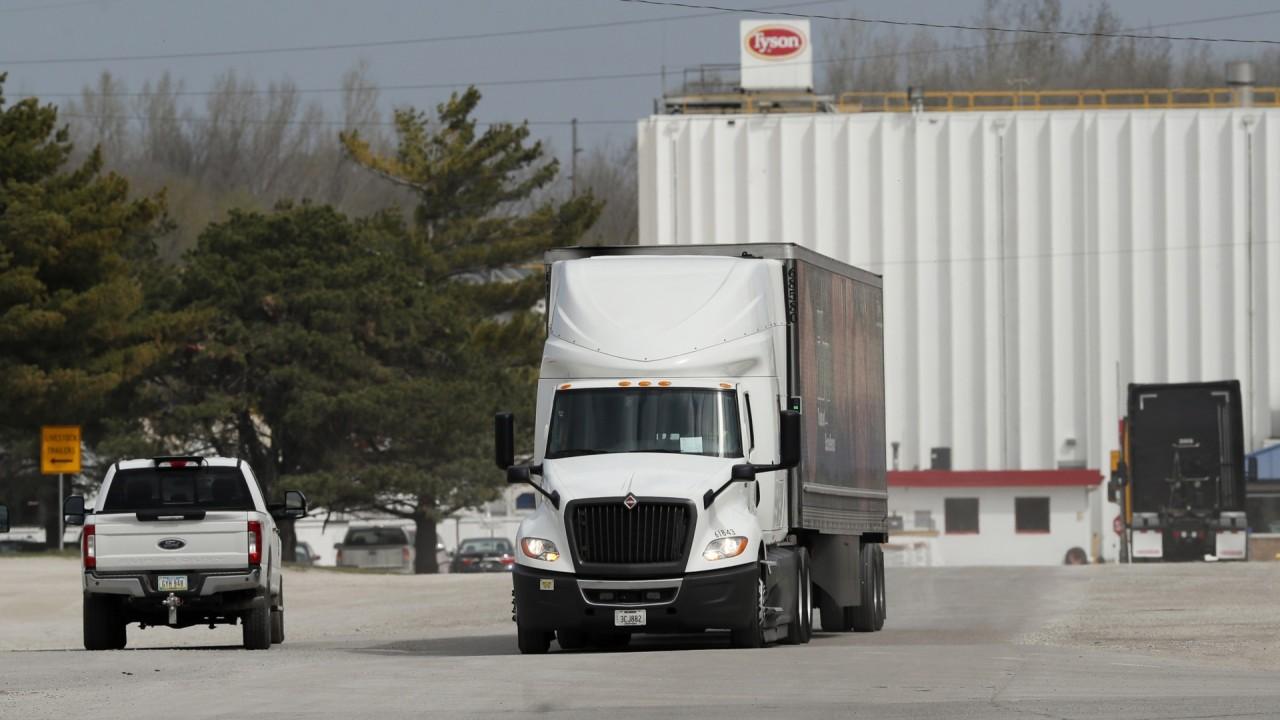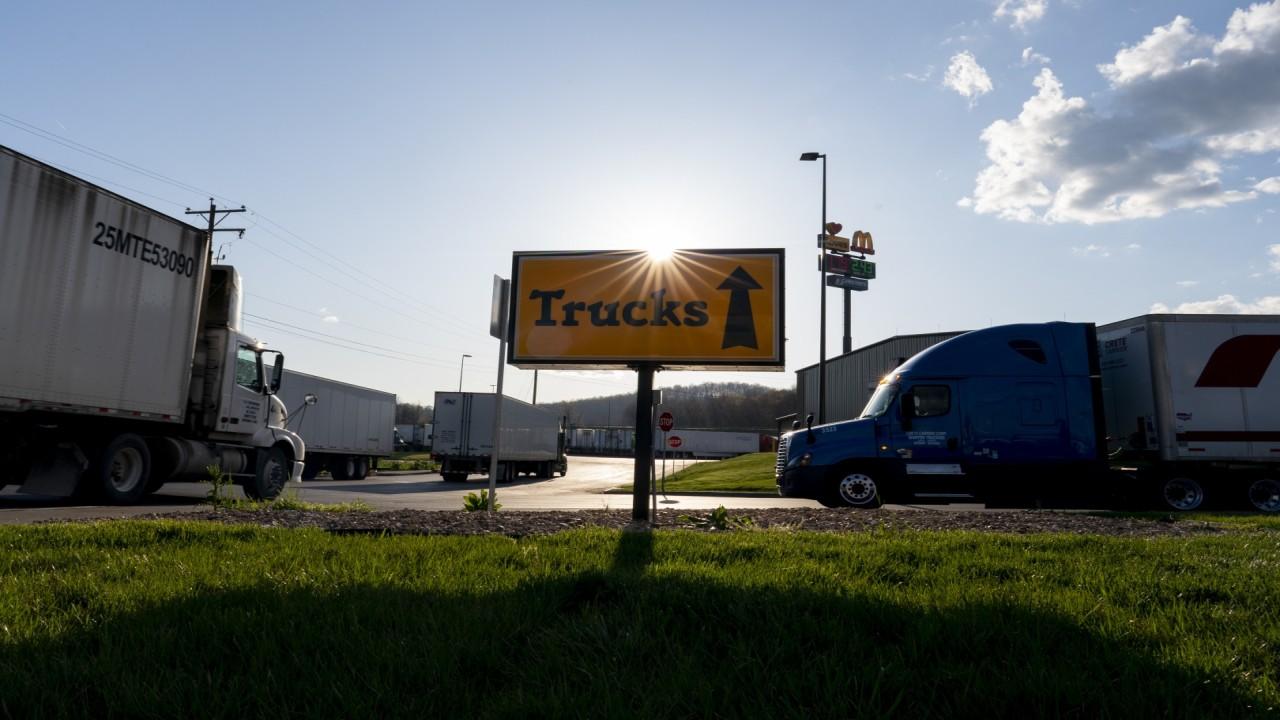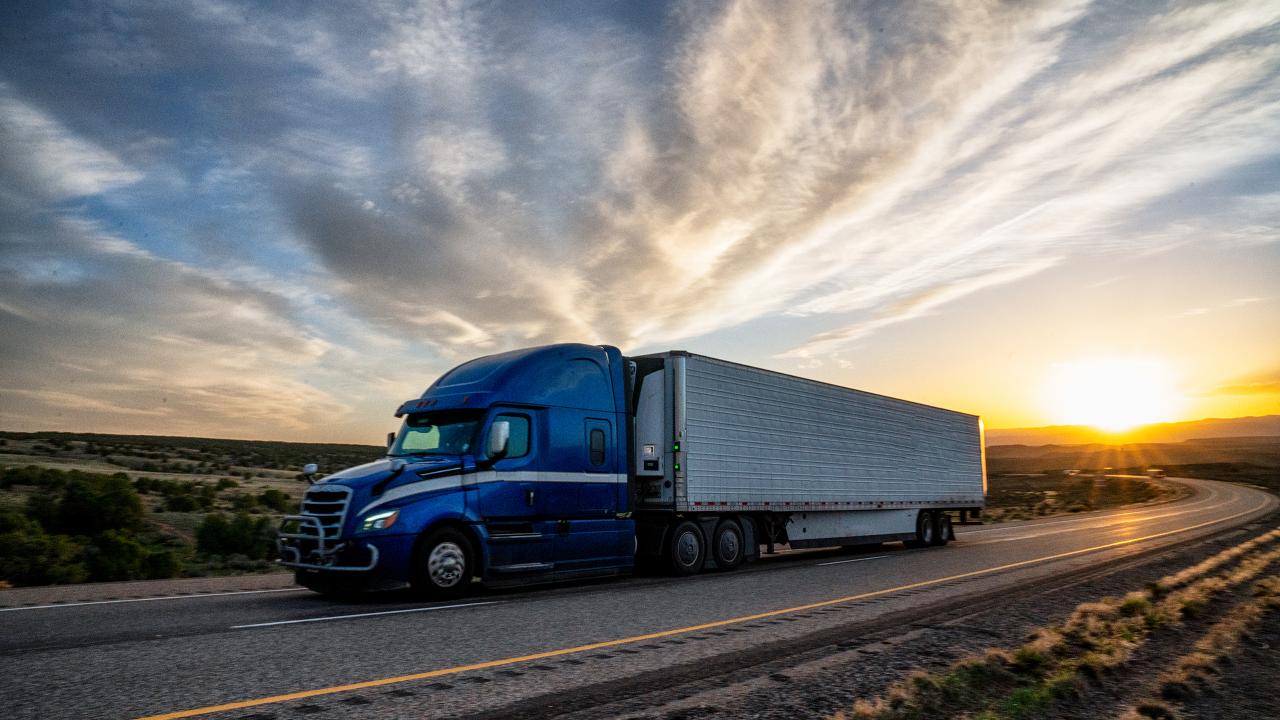Truckers are coronavirus heroes, but proposed truck limits would threaten families, first responders
Some of the nation’s largest shippers and retailers are pushing for a major increase to the size of trucks
Get all the latest news on coronavirus and more delivered daily to your inbox. Sign up here.
The coronavirus crisis hasn’t been easy for taxpayers. Relief legislation thus far has added roughly $3 trillion to the federal debt, or about $20,000 for each family in the U.S. And now, some of the nation’s largest shippers and retailers are pushing for a major increase to the size of trucks allowed on the nation’s highways, an effort that will balloon infrastructure costs and endanger first responders and motorists nationwide.
Most certainly, U.S. truck drivers are heroically helping at a time when it is needed most. Their commitment to the nation is unquestionable.
STOCKS SLIDE AS CORONAVIRUS JOB LOSSES TOP 30M
The issue is not about the drivers, but about larger and more dangerous trucks and whether they should be the roads. These trucks will lead to considerable wear-and-tear, causing taxpayers to shell out billions of dollars more to repair damaged pavement.
The Highway Trust Fund already runs annual cash deficits north of $10 billion, and loosened standards will only add to those totals. And, unstable trucks will result in countless avoidable accidents, paving the way for increased emergency response costs and the tragic loss of life. Roadworthiness standards are needed now more than ever to keep the roads safe and maintained at minimal cost.
According to studies by the U.S. Department of Transportation (DOT) there is good reason for the overarching federal strictures – larger and heavier trucks are far more dangerous to motorists. DOT found that heavier trucks with six axles — both 91,000-pound and 97,000-pound configurations — had higher crash rates in state testing. The agency also found that testing of two tethered longer trucks, each 33 feet in length, took 22 feet longer to stop than the current 28-foot twin trailers.
David Steffen, chief of police with the Northern Lancaster County (Pa.) regional police department, succinctly sums up the dangers to every motorist around the country from longer and heavier trucks.
CONSUMER SPENDING PLUMMETS 7.5% IN MARCH, BIGGEST DROP ON RECORD
“What would longer double-trailer trucks mean for us? It means motorists would be on the highway with trucks that take 22 feet longer to stop, have reduced stability and are more difficult to pass for adjacent motorists. It means allowing trucks on the road that cause larger crash footprints and increased crash severity,” he wrote.
“What would heavier trucks mean for us? It means that the driving public would be sharing the road with trucks that are much more likely to roll over. It means we would be sharing the highway with trucks more prone to having bad brakes, which has been shown to increase the chances of a crash by 362 percent. When there are problems with truck brakes, the truck has problems with stopping – we don’t have to be vehicle inspectors to draw the conclusion,” he added.
The Highway Trust Fund already runs annual cash deficits north of $10 billion, and loosened standards will only add to those totals. And, unstable trucks will result in countless avoidable accidents, paving the way for increased emergency response costs and the tragic loss of life.
Worse still, the overwhelming weight of evidence indicates that large trucks fail to cover the cost they impose on highway infrastructure, leaving taxpayers to foot the remaining bill.
Judith Corley-Lay, the chief pavement management engineer for the North Carolina Department of Transportation, analyzed the issue at length over a decade ago and found overweight trucks cost her state alone $78 million per year in additional taxpayer expenses. Scaling these costs nationwide wouldn’t bode well for already-struggling taxpayers.
FED PLEDGES AGGRESSIVE ACTION TO SUPPORT US ECONOMY
And yet, amid the rush to approve various coronavirus stimulus measures, lobbying groups and allied lawmakers are seeking to lift truck limits in perpetuity.
In a March 19 email to lawmakers and members of the Trump administration, these groups and companies solicited their assistance in overturning existing limits. “We call on bipartisan leaders, during this time of national unity, to modernize outdated regulations and allow twin 33s to operate nationally, providing immediate benefits and improvements for the flow of goods to consumers and businesses,” they wrote, referring to the 33-foot long trucks capable of wreaking havoc of roadways.
Although Congress has rejected previous attempts to lift size and weight limits, lawmakers are allowing a temporary reprieve from the weight limit as part of its response to the Coronavirus crisis. Unfortunately, the National Feed and Grain Association is asking that all U.S. states rush to take advantage of this emergency measure and raise truck weights to 88,000 pounds. While the emergency measure on increased weight has a sunset provision, public safety experts are concerned that, as has happened with other “temporary” actions taken by Congress, these provisions may become permanent.
GET FOX BUSINESS ON THE GO BY CLICKING HERE
This must not happen.
Semi-trailer trucks play a vital role in the U.S. economy and transportation system and are extremely important for keeping goods flowing during the coronavirus crisis. But longer, heavier trucks endanger motorists and cost taxpayers untold resources at a tumultuous time.
Now more than ever, taxpayers deserve level-headed, low-cost transportation policies.
Ross Marchand is the director of policy for the Taxpayers Protection Alliance. The Taxpayers Protection Alliance (TPA) is a non-profit non-partisan organization dedicated to educating the public through the research, analysis and dissemination of information on the government's effects on the economy.






















